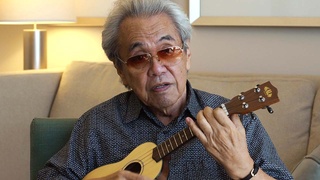Interviews
The reason for creating the songflim Omoiyari
The initial impetus was obviously the election. And then there’s that guy who’s talking about the Muslim ban and how the executive order, the incarceration, was precedent and that kind of really activated me in a way that, it was like I felt threatened as a minority in this country for the first time. I always kind of believed this country was a melting pot, it was open for everybody, and that’s when I started to really try to understand the incarceration.
This film serves two parts in that one is to kind of show this history and to develop empathy and kind of confront privilege to have my viewers take a step back and really understand how to help their community, or how to help underprivileged people or to help minorities – to get that perspective.
And I like to encourage minorities to have hope, that this is just a turning point. And then also for white people to be, hey this is really not just your country anymore. And all these advantages you’ve had, you should really acknowledge them and take a step back and share.
Date: August 21, 2018
Location: California, US
Interviewer: Sharon Yamato
Contributed by: Watase Media Arts Center, Japanese American National Museum
Explore More Videos





Postwar school-life
(b. 1930) Half Japanese and grew up in both Japan and the United States.

On Challenging Institutions
(1938-2020) Japanese American attorney and civil rights activist

Pop and Balls
(1938-2020) Japanese American attorney and civil rights activist

Re-examining Identity
(1941-2018) Japanese Canadian photojournalist and activist

How he got on the All-Navy show on Ed Sullivan
(b. 1934) Ukulele player from Hawaii





Conflicted about immigrating to America (Japanese)
(b. 1925) War bride

Defining "Nikkei"
(1941-2018) Japanese Canadian photojournalist and activist
